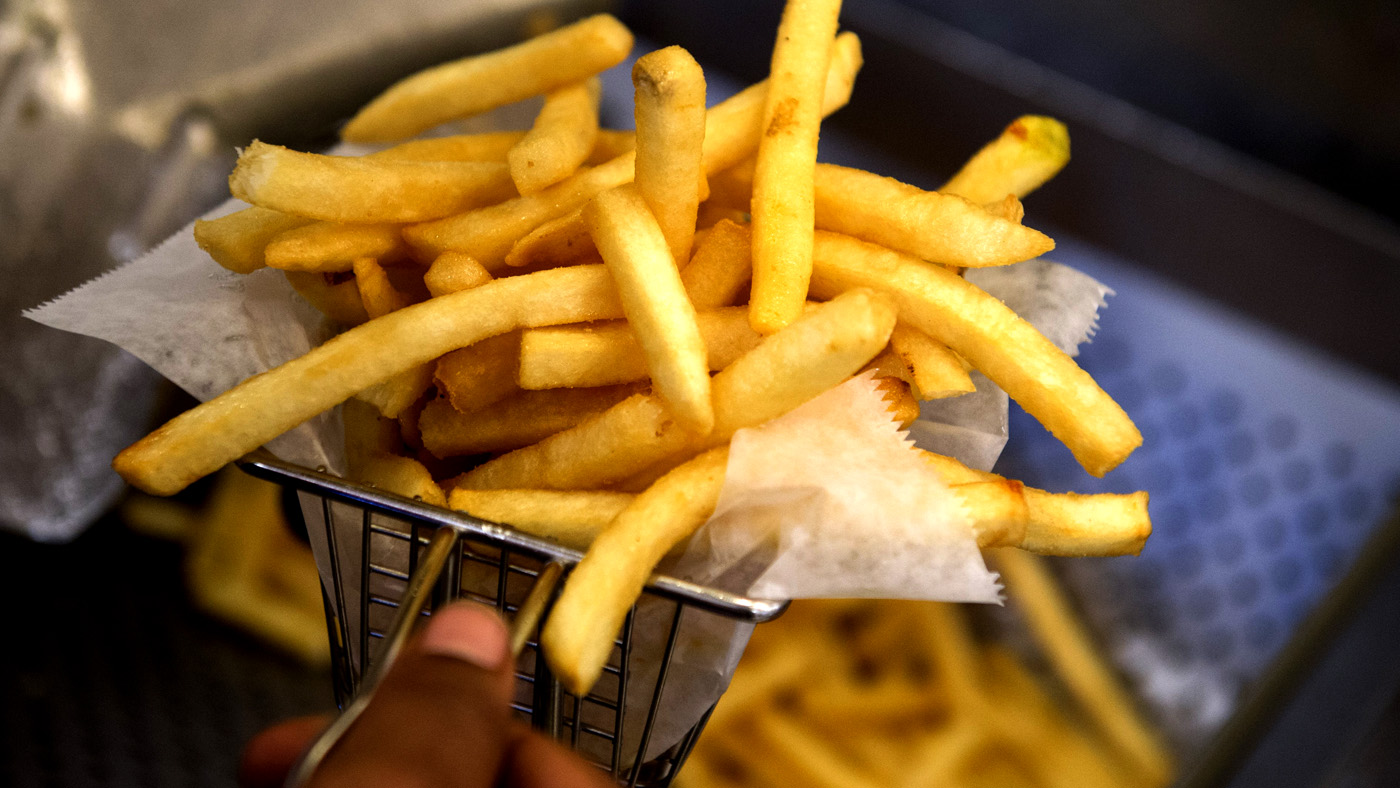The diet that turned a UK teenager blind
The Bristol boy ate only chips, crisps, white bread and processed meat

A free daily email with the biggest news stories of the day – and the best features from TheWeek.com
You are now subscribed
Your newsletter sign-up was successful
A British teenager developed permanent sight loss as a result of his poor diet, according to a newly published case report that has prompted warnings about the potential health risks of junk food.
The Telegraph says the 17-year-old boy also has hearing problems and bone weakness after living off a “daily portion of chips, crisps, white bread and processed meat for around a decade”. He had previously told doctors he did not like the “texture” of fruit and vegetables, the newspaper adds.
The unnamed patient, from Bristol, first went to his GP at the age of 14 complaining of tiredness. “He was diagnosed with vitamin B12 deficiency and put on supplements, but he did not stick with the treatment or improve his poor diet,” adds the BBC.
The Week
Escape your echo chamber. Get the facts behind the news, plus analysis from multiple perspectives.

Sign up for The Week's Free Newsletters
From our morning news briefing to a weekly Good News Newsletter, get the best of The Week delivered directly to your inbox.
From our morning news briefing to a weekly Good News Newsletter, get the best of The Week delivered directly to your inbox.
“By age 17, the patient’s vision had become progressively worse, to the point of blindness,” say the authors of the official report on the case, published in the Annals of Internal Medicine.
Tests revealed that the teen had severe vitamin deficiencies that led him to develop a condition called nutritional optic neuropathy (NON), most commonly seen in malnourished children in developing countries.
The condition is characterised by a “dysfunction of the optic nerves in one or both eyes resulting from improper dietary content of certain nutrients essential for normal functioning of the nerve fibres”, according to the US National Library of Medicine National Institutes of Health.
The disorder is treatable if diagnosed early, but if left too long the “nerve fibres in the optic nerve die and the damage becomes permanent”, says the BBC. It is understood that the British teen’s blindness is irreversible.
A free daily email with the biggest news stories of the day – and the best features from TheWeek.com
Case report co-author Dr Denize Atan, of University Hospitals Bristol NHS Foundation Trust, said that parents “should be aware of the potential harm that can be caused by picky eating, and seek expert help”.
“The link between poor nutrition and vision has been known about for quite some time, at least among specialists in neuro-ophthalmology. The problem is that awareness among other health professionals isn’t quite so high,” Atan added.
A study of 19 European countries by the the University of Sao Paulo last year found that UK families buy more ultra-processed food than any others in Europe, amounting to 50.7% of their diet.